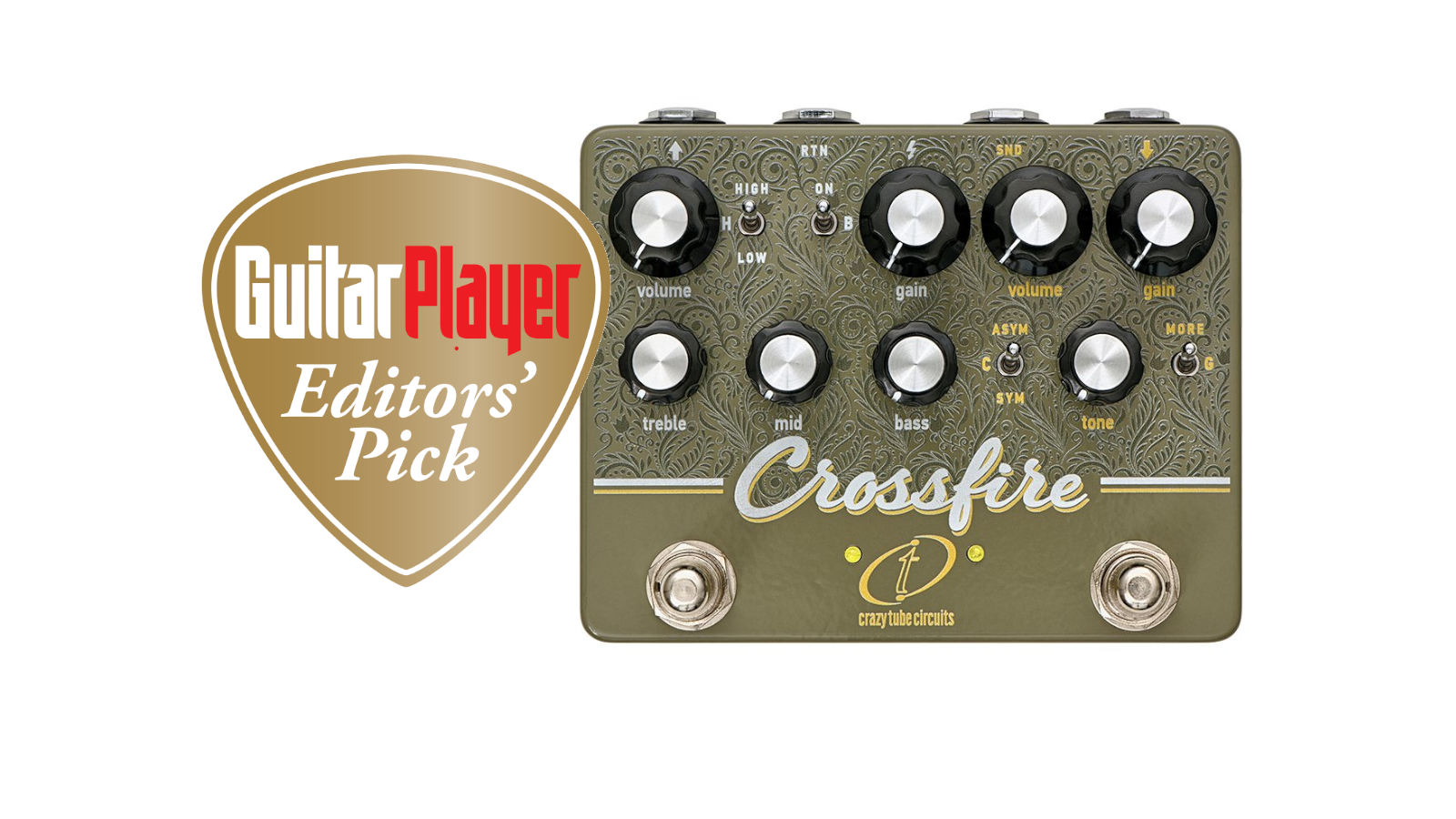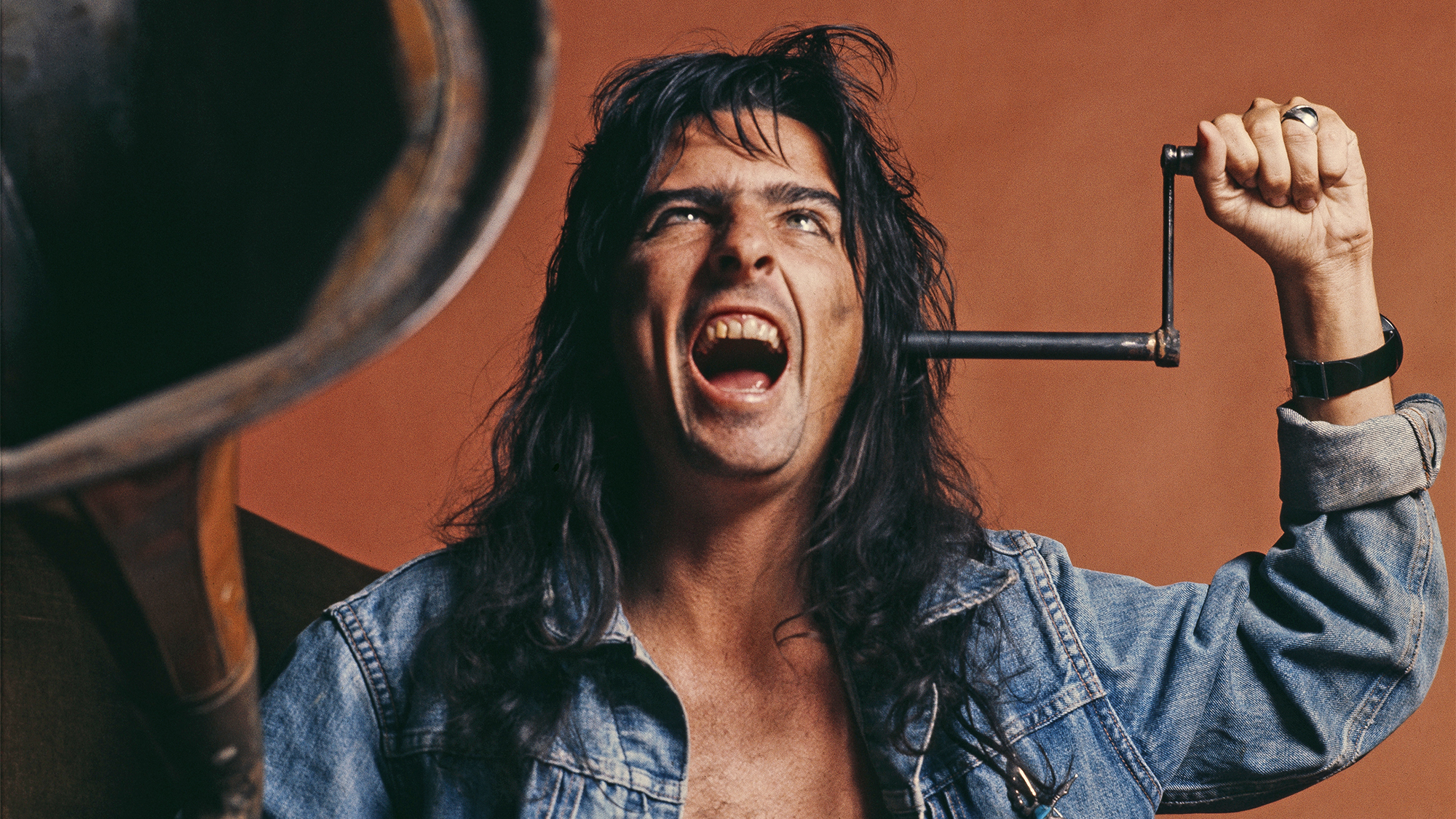GuitarPlayer Verdict
Tons of warm, American, tube-like tones and a gargantuan variety of malleable grit from slight drive to near fuzz reside in this solid board-friendly pedal
Pros
- +
Provides SRV tones and many other types of classic sounds, for a very versatile drive pedal
Cons
- -
Non-SRV fans might unfortunately pass it up
You can trust Guitar Player.
It’s right there in the name – a reference to one of Stevie Ray Vaughan’s best-known songs. Crazy Tube Circuits (CTC) makes no bones about its Crossfire pedal giving you access to some of the Texas blues phenom’s coveted tones. As they put it, “Crossfire is inspired by one of the most iconic pedal-amp combinations in guitar history.”
Crossfire is inspired by one of the most iconic pedal-amp combinations in guitar history
Crazy Tube Circuits
In fact, this dual-effect pedal offers much more. The left side is voiced to emulate blackface tube amps like the Fender Twin and Super Reverbs. CTC uses analog circuitry to mimic the sonic signatures of those vintage legends. A headroom switch lets you choose the super-clean solid-state rectified 4x6L6GC power amp sound of a Twin or the distortable sponginess of a tube-rectified 2x6L6GC Super Reverb.

The right side provides the famous green pedal (read: Ibanez Tube Screamer) mid-hump overdrive. In addition to re-creating the circuit of this classic overdrive, CTC added some of the modifications the pedal has seen throughout the years.
The left side is voiced to emulate blackface tube amps… The right side provides the famous green pedal
A clipping toggle switch selects between original symmetrical or asymmetrical clipping, while a gain toggle adds more gain and alters the low frequency response, as if you were running two of the pedals in series.
A passive effects loop allows pedals to be placed between the overdrive and the amp side. When both sides are in bypass, the loop is true bypass as well, but this just refers to the signal path. If the pedal in the loop is on when you shut both Crossfire sides off, it still affects the signal. Think of it as running three independent pedals.
Using just the amp side, we set the toggle for the 2x6L6 simulation and the gain for a bit of breakup. We turned the treble up, the mids down, and the bass about halfway for a superb Super Reverb tone. This provided instant SRV rhythm sounds, while driving it slightly with the right-side Screamer pushed it into Stevie lead territory.
But this pedal is no one-trick pony.
All the latest guitar news, interviews, lessons, reviews, deals and more, direct to your inbox!
Cranking the bass and mids on the amp side and switching from a Strat to a Les Paul served up some Hubert Sumlin-through-a-tweed Deluxe tones. Toggling to the 4x6L6 setting while lowering the mids shifted the tone toward a Twin and gave our 1x10 Supro Comet the girth of a 2x12 Twin, and adding the overdrive side set for extra gain produced luscious, Santana-like sustain.
Even at higher gain settings the pedal remained sensitive to both touch and guitar volume settings. So, yes, the Crossfire can deliver SRV sounds, but if you aren’t tuned down a half-step, using telegraph-wire gauge strings and playing as if your life depended on it (and loud enough to get arrested), don’t expect to sound like him.
The good news is that tons of warm, American, tube-like tones and a gargantuan variety of malleable grit from slight drive to near fuzz reside in this solid pedalboard-friendly pedal.
Specifications:
CONTROLS: Overdrive: gain, tone, volume, clipping toggle, gain toggle internal headroom switch. Amp: gain, volume, treble, mid, bass, headroom toggle switch, bright toggle switch
EXTRAS: A passive effects loop between the overdrive and amp in a box. An internal switch provides 18V DC to the overdrive circuit
SIZE: 4.5” W x 3.5” D x 1.25” H
BUILT: Greece
Visit Crazy Tube Circuits for more information.

